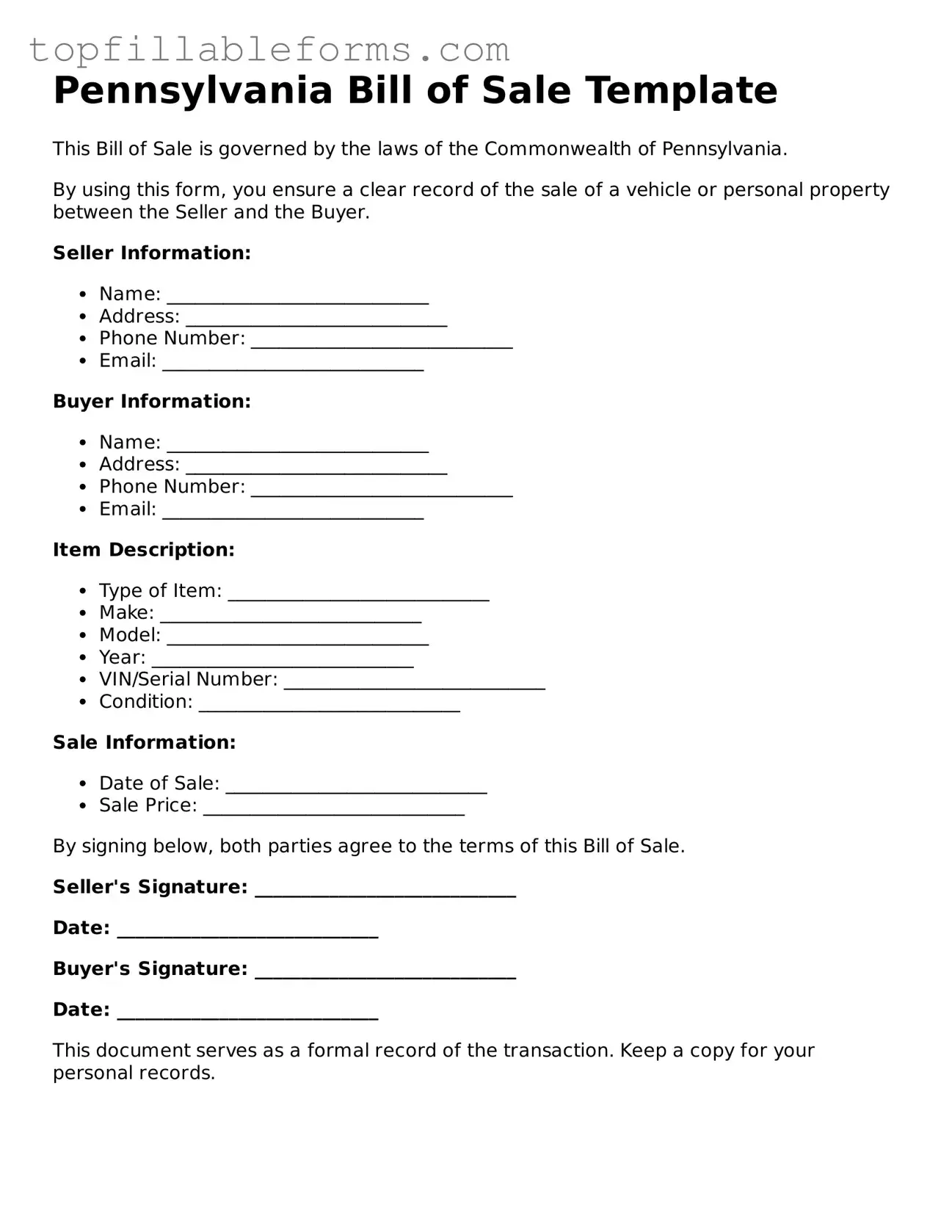Attorney-Verified Bill of Sale Template for Pennsylvania
The Pennsylvania Bill of Sale form is a legal document that records the transfer of ownership of personal property from one person to another. This form serves as proof of the transaction, detailing important information about the buyer, seller, and the item being sold. Understanding how to properly use this form can help ensure a smooth transfer and protect both parties involved.
Open Bill of Sale Editor Here

Attorney-Verified Bill of Sale Template for Pennsylvania
Open Bill of Sale Editor Here
Finish the form now and be done
Finish your Bill of Sale online by editing, saving, and downloading fast.
Open Bill of Sale Editor Here
or
▼ PDF File
